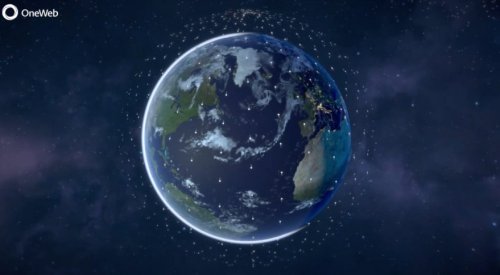WASHINGTON — The Federal Communications Commission approved the sale of OneWeb to the British government and Bharti Global Oct. 27, as rival SpaceX started a public beta test of its Starlink system.
In a public notice, the FCC announced it has approved the transfer of OneWeb’s satellite and ground station licenses to its new owners as the company seeks to exit its Chapter 11 bankruptcy proceedings. OneWeb requested the transfer Sept. 2, and there were no public comments on the request.
A federal bankruptcy court approved the sale of OneWeb to the British government and Bharti Global Oct. 2, three months after they submitted a winning bid of $1 billion for the company. OneWeb said at the time of the court approval that the sale would close once it received “customary regulatory approvals” from agencies like the FCC. OneWeb expects to have the sale wrapped up by the end of the year.
According to the FCC notice, the British government and Bharti Global will each have a 42.2% stake in the reorganized OneWeb. SoftBank, a leading investor in OneWeb prior to the Chapter 11 filing, will have a 12.3% stake. SoftBank owned 37.41% of OneWeb before the Chapter 11 filing.
Hughes Network Systems, which owned 2.6% of OneWeb before the Chapter 11 filing, announced in July it would invest $50 million into the reorganized company. The FCC notice states that the terms of that investment have yet to be finalized, but that it will not have a “meaningful impact” on the ownership stakes of the British government and Bharti Global.
OneWeb plans to resume launches in December of its constellation, which were placed on hold after a pair of Soyuz launches in February and March. The company is deploying an initial constellation of 650 satellites to provide broadband internet access globally.
OneWeb’s biggest competitor, SpaceX, has continued to roll out its Starlink constellation, with more than 800 satellites now in orbit. That includes 180 satellites launched in October alone on three Falcon 9 launches.
With its constellation growing, SpaceX is beginning a public beta test for the system. SpaceX started informing people who expressed interest to be the first to test the system Oct. 26 that they could now sign up for the service and order hardware, including the system’s distinctive “UFO-on-a-stick” antenna.
Participants in the beta test, which is initially limited to northern regions of the U.S., will have to pay $499 for the antenna and other hardware. The service itself will cost $99 per month.
Those who participate in what SpaceX calls the “Better Than Nothing Beta” were told by the company to expect data rates of 50–150 megabits per second, and latencies of 20–40 milliseconds. “There will also be brief periods of no connectivity at all,” the SpaceX email cautions.
The scope of the beta test is expected to expand, and the quality of the service improve, as SpaceX adds more satellites to the constellation. The SpaceX email said bandwidth, latency and uptime will “improve dramatically” by the summer of 2021.
The system has already been in a “friends and family” private beta test in the Pacific Northwest that has also included the emergency management department of the state of Washington and the Hoh tribe in the state. Ector County Independent School District in West Texas recently announced it will use Starlink to provide free broadband to 45 families in a rural part of the county. That service, the district said in an Oct. 20 statement, will begin “early in 2021.”
- 30 Years in Space: a look at SpaceNews’ legacy
- Crunch time: Rocket companies in all-out battle for Air Force award
- Why Sierra Nevada’s owners are betting big on Dream Chaser
- LEO and MEO broadband constellations mega source of consternation
- SpaceX takes top honors in SpaceNews Awards for Excellence & Innovation
Share with your friends

(0) Comments
This article comments are currently no :(